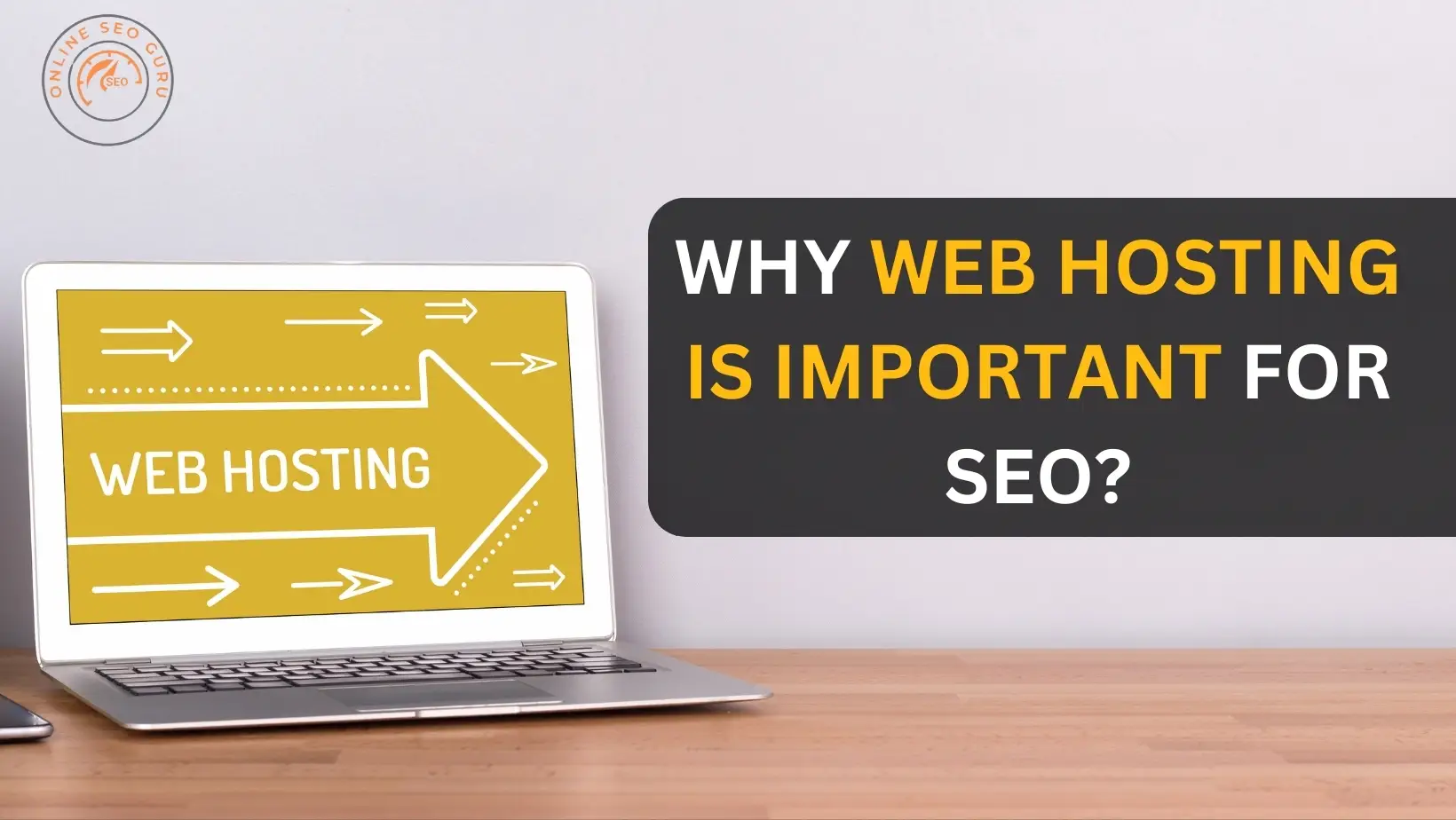Imagine you’ve spent months crafting the perfect website, filled with valuable content and optimized for search engines. You’ve built backlinks, shared them on social media, and done everything possible to get your website noticed. Yet, traffic remains stagnant, and your ranking on search engine result pages (SERPs) is stuck in the doldrums. You might be wondering, “What am I missing?” The answer could lie in a surprising place: your web hosting.
While most blogs focus on on-page SEO tactics like keyword optimization and content creation, the foundation of your online presence often gets overlooked. Think of your website as a house: the content is the furniture and décor, attracting visitors and showcasing your value. But the hosting is the foundation, the unseen structure that determines how well your house stands and performs. A shaky foundation can lead to cracks, leaks, and a house that crumbles. Likewise, poor web hosting can cripple your SEO efforts, hindering your website’s ability to attract and retain visitors and, ultimately, achieve higher rankings.

Why Web Hosting Deserves Your Attention When it Comes to SEO
Speed: The First Impression That Matters
In today’s fast-paced world, patience is a rare commodity. Users expect websites to load instantly, and Google prioritizes sites that deliver lightning-speed experiences. Studies by Google and others show a direct correlation between website speed and bounce rate (the percentage of visitors who leave without engaging). A 1-second delay in page load time can lead to a 7% conversion rate loss.
The good news? Your web hosting provider plays a significant role in website speed. Shared hosting, where multiple websites share resources on a single server, can often lead to sluggish performance during peak traffic hours. Upgrading to a dedicated server or cloud hosting, where resources are solely dedicated to your website, can significantly improve speed and user experience.
Uptime: The Constant Availability You Need
Imagine hosting a grand party but forgetting to unlock the door. That’s what website downtime feels like for your visitors and search engines. Downtime disrupts user experience and sends negative signals to Google, potentially impacting your ranking. Aim for a web hosting provider with at least a 99.9% uptime guarantee, ensuring your website is always accessible to potential customers and search engine crawlers.
Security: The Shield Against Malware and Hackers
A website breach can be devastating, not only for user trust but also for SEO. Google penalizes websites infected with malware, pushing them down in search results to protect users. Secure your website with a reputable web hosting provider that offers features like firewalls, malware scanning, and automatic backups to ensure your content and data are safe from malicious attacks.
Mobile-friendliness: Reaching Users on the Go
With over half of all internet traffic now coming from mobile devices, having a website that looks and functions flawlessly on smartphones and tablets is no longer optional; it’s essential. Choose a web hosting provider offering mobile-optimized servers and CDN (Content Delivery Network) services to deliver content quickly and seamlessly across various devices, improving user experience and boosting your mobile search ranking.
Mobile optimization has become non-negotiable, with mobile devices accounting for a significant portion of web traffic. Search engines prioritize mobile-friendly websites in their rankings, considering the responsive design and mobile page speed. Your choice of web hosting can influence mobile optimization, with factors like server configuration and caching mechanisms affecting mobile performance. By partnering with a web hosting provider that prioritizes mobile optimization, you can ensure seamless user experiences across all devices and enhance your website’s SEO visibility.
Server Location: Targeting the Right Audience
While often overlooked, server location can have a subtle but impactful influence on your SEO, especially for local businesses targeting specific regions. Choosing a hosting provider with servers in your target area can reduce local users’ latency (loading times) and improve your ranking in local search results.
Crawl Budget: Making the Most of Search Engine Visits
Search engines have limited resources and allocate a “crawl budget” to each website, determining how often they visit and index its pages. If your website is slow, experiences downtime, or has technical issues, it can waste valuable crawl budget, hindering your website’s ability to get fully indexed and ranked for relevant keywords. Choosing a reliable web hosting provider ensures your website is readily accessible and crawlable, maximizing the impact of your crawl budget.
The Intricate Dance of Web Hosting and SEO
While most discussions around SEO focus on keywords, backlinks, and content quality, the role of web hosting remains shrouded in mystery. Yet, the truth is that your choice of web hosting can make or break your SEO efforts.
Location, Location, Location
Regarding web hosting, server location plays a pivotal role in SEO. Search engines consider the geographical proximity between the server and the target audience when ranking websites. For local businesses targeting specific regions, opting for a web hosting provider with servers strategically located near their target audience can significantly boost SEO performance. Studies reveal that websites hosted on servers closer to their target audience experience faster load times and higher search engine rankings.
Security First
In an era plagued by cyber threats, website security is paramount. Not only does it protect sensitive data and user information, but it also impacts SEO. Search engines prioritize secure websites, giving them a ranking advantage over their less-secure counterparts. With the prevalence of SSL certificates and advanced security features offered by reputable web hosting providers, you can fortify your website against cyber attacks and earn the trust of both users and search engines.
Beyond the Basics
While the factors above are crucial, they only scratch the surface of the symbiotic relationship between web hosting and SEO. Delving deeper, we uncover many lesser-known aspects that can impact your website’s SEO performance.
Server Response Time
Whenever a user requests access to your website, the server must respond promptly to deliver the requested content. A sluggish server response time can frustrate users and hinder search engine crawlers’ ability to index your website efficiently. By choosing a web hosting provider with low server response times and robust infrastructure, you can ensure swift responses that enhance user experience and SEO performance.
Shared Hosting Pitfalls
While shared hosting may seem like a budget-friendly option, it comes with limitations and risks. Sharing server resources with numerous other websites can lead to performance issues, especially during peak traffic hours. Additionally, the actions of neighbouring websites, such as spamming or malware attacks, can tarnish your website’s reputation and impact its search engine rankings. Upgrading to a dedicated or VPS (Virtual Private Server) hosting plan can provide the scalability, performance, and security needed to elevate your SEO game.
Content Delivery Networks (CDNs)
As the internet continues to globalize, catering to audiences worldwide requires a strategic approach. Content Delivery Networks (CDNs) play a pivotal role in optimizing website performance and enhancing SEO on a global scale. By distributing website content across multiple servers in different geographic regions, CDNs minimize latency and improve page load times for users worldwide. Integrating a CDN with your web hosting infrastructure can amplify your website’s reach and elevate search engine rankings across diverse demographics.
While the points above are crucial, some hosting providers offer additional features that can give you an SEO edge:
- – Caching: Caching stores frequently accessed data, reducing load times and improving website performance.
- – Image Optimization: Optimize image sizes and formats for faster loading without compromising quality.
- – SSL Certificates: Secure Sockets Layer (SSL) certificates encrypt data transmission, improving website security and trust, which are positive SEO signals.
In the ever-evolving landscape of SEO, web hosting emerges as a silent yet powerful ally in your quest for digital dominance. By understanding the intricate interplay between web hosting and SEO, you can unlock new avenues for enhancing your website’s visibility, credibility, and success. Remember, the next time you embark on your SEO journey, don’t overlook the crucial role of web hosting – it might just be the missing piece of the puzzle.
So, are you ready to harness the full potential of web hosting and propel your SEO efforts to new heights? The choice is yours – choose wisely and watch your website soar above the competition.







